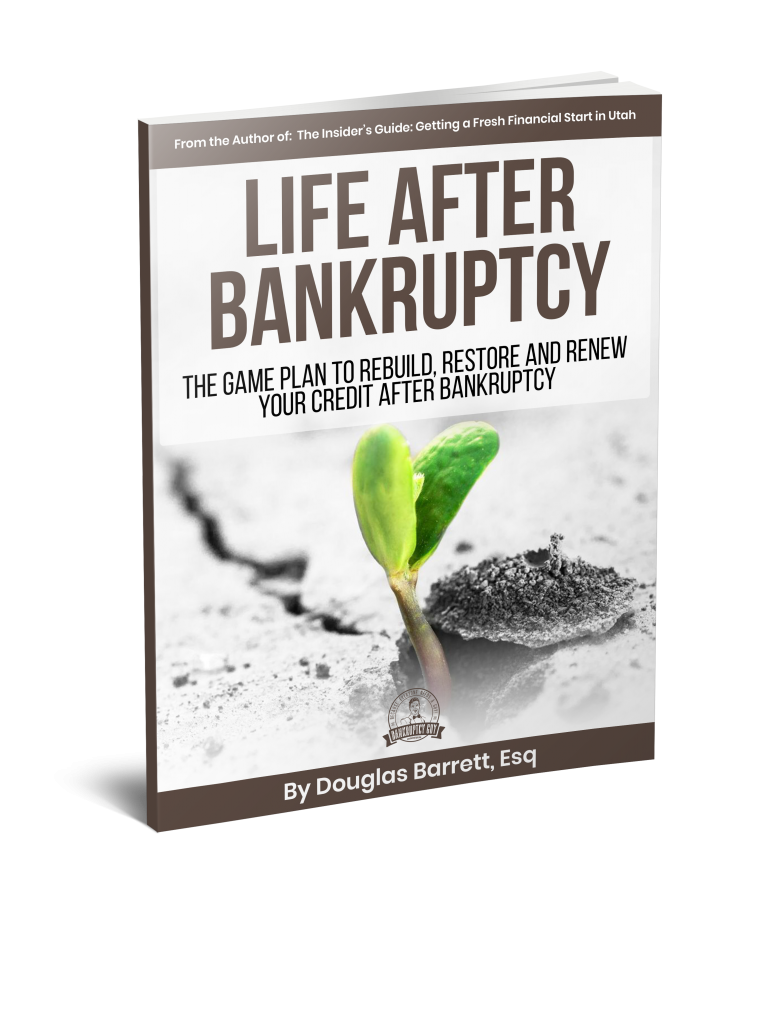Bankruptcy is often perceived as a financial catastrophe, a label that carries a stigma and can leave individuals feeling overwhelmed and defeated. “Contrary to popular belief, bankruptcy doesn’t necessarily equate to a life of perpetual financial ruin.” Says Douglas Barrett a Utah Attorney and Author of the book, LIFE AFTER BANKRUPTCY: The Game Plan to Rebuild, Restore and Renew Your Credit After Bankruptcy. In fact, according to Barrett, “many people who have gone through bankruptcy find ways to rebuild their lives and achieve financial stability once again, ultimately living fulfilling and “normal” lives.”
The first step in moving forward after bankruptcy is to change one’s mindset. While bankruptcy can be a challenging experience, it’s crucial to recognize that it doesn’t define a person’s worth or future prospects. Viewing bankruptcy as a fresh start rather than a failure can help individuals approach their financial situation with a positive outlook and a sense of determination.
Rebuilding credit is often a top priority for individuals emerging from bankruptcy. Although bankruptcy can have a significant impact on credit scores, it’s not irreversible. By adopting responsible financial habits such as paying bills on time, keeping credit card balances low, and avoiding new debt, individuals can gradually improve their creditworthiness over time. Many financial institutions also offer secured credit cards or other credit-building products specifically designed for individuals with a history of bankruptcy.
“Contrary to popular belief, bankruptcy doesn’t necessarily equate to a life of perpetual financial ruin.”
Douglas Barrett, Attorney and author of Life After Bankruptcy
Budgeting becomes paramount in the post-bankruptcy phase. Creating a realistic budget that aligns with one’s income and financial goals can help prevent future financial crises and ensure that expenses are kept in check. Tracking expenses, prioritizing needs over wants, and identifying areas where spending can be reduced or eliminated are essential components of effective budget management.
Additionally, seeking professional financial advice can be invaluable in navigating the complexities of post-bankruptcy life. Financial advisors or credit counselors can provide personalized guidance on budgeting, debt management, and long-term financial planning, helping individuals make informed decisions and set achievable goals.
Securing stable employment or increasing one’s income is another critical aspect of rebuilding after bankruptcy. While bankruptcy can present obstacles in terms of employment opportunities, many employers are understanding of past financial difficulties, especially if the individual demonstrates a commitment to financial responsibility and personal growth. Pursuing additional education or training to enhance skills and qualifications can also improve job prospects and earning potential.
Cultivating a supportive network can provide emotional and practical assistance during the post-bankruptcy journey. Whether it’s family, friends, or support groups, having people to lean on during challenging times can make a significant difference in one’s ability to stay motivated and focused on their financial goals. Sharing experiences and strategies with others who have gone through similar challenges can also offer valuable insights and encouragement.
Moreover, it’s essential to prioritize self-care and mental well-being throughout the process of rebuilding after bankruptcy. Dealing with financial stress and uncertainty can take a toll on mental health, so practicing self-care activities such as exercise, mindfulness, and spending time with loved ones can help maintain a sense of balance and resilience.
While bankruptcy can be a tough experience, it doesn’t have to dictate the course of one’s life. By adopting a positive mindset, implementing sound financial practices, seeking professional guidance, and leveraging support networks, individuals can overcome the challenges of bankruptcy and ultimately live fulfilling and financially stable lives.
Finally, as Attorney Barrett points out, “With perseverance, determination, and a willingness to learn from past mistakes, it’s entirely possible to emerge from a bankruptcy stronger, wiser, and better equipped to face whatever your future may hold.”

